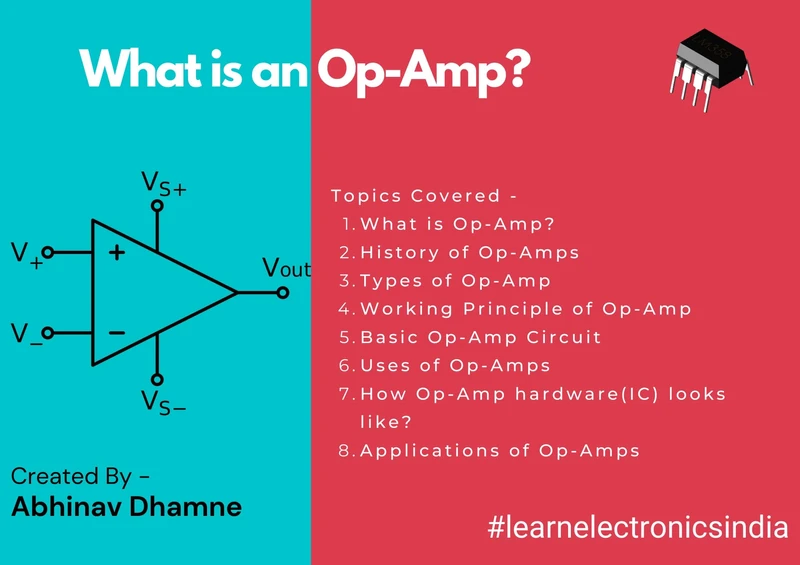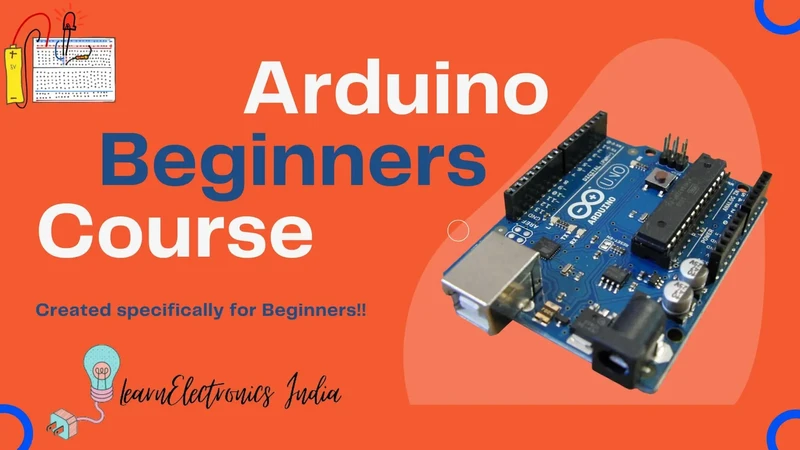Introduction to Electronics Engineering - A Beginner’s Guide (2025)
- LearnElectronics
- May 20, 2023
- 5 min read
Updated: Apr 21, 2025
Introduction to Electronics is your key to entering the thrilling world that powers all from phones to sophisticated industrial machines. You might be creating a PCB (Printed Circuit Board), decoding a circuit schematic, or figuring out the dynamics of operational amplifiers (op amps), with a good base in contemporary electronics you are endowed with the facts and tools needed to innovate and fix real-life problems. With the speedy emergence of automation, intelligent devices, IoT (Internet of Things), and networked systems, studying how electronic devices work is no longer just for engineers—it's a necessity for hobbyists, students, makers, and anyone interested in understanding the digital world surrounding them.

This complete guide for beginners will take you step by step through the main topics of electrical circuits, digital circuits, and electronics diagrams, and include practical uses and information on how to design your own projects confidently.
Check out the Basic Electronics Course -

Basic Electronics Concepts
The basis for electronics is to comprehend three important electrical characteristics: voltage, current, and resistance. They are the fundamental parameters found in every electrical circuit that you will come across.
Ohm's Law and Kirchhoff's Laws enable you to determine how voltage and current interact in a circuit.
Understand what is AC (Alternating Current) and DC (Direct Current), and their respective
applications.
Investigate major electronic components such as resistors, capacitors, and diodes and how they work together in circuits.
Learning how these components work together in a circuit diagram is the first step to becoming an expert in electronics.
Electronic Components and Devices - Electronics | A Beginner’s Guide
No electronics project is complete without knowledge of its basic electronic components. Here are the essentials broken down:
Resistors & Capacitors: Regulate current and hold charge in the electrical circuit.
Inductors & Diodes: Applied directly to power and signal direction.
Transistors: Used as switches or amplifiers in digital circuits.
Op Amps (Operational Amplifiers): These play a crucial role in analog signal processing and are found widely in amplifiers, filters, and oscillators.
Sensor Types: Comprises temperature, light, motion, and pressure sensors—essential for automation and IoT.
These devices are the bloodline of modern electronics, whether you're making a robot, a home automation setup, or a simple audio amplifier.
Check the Op-Amps Course -
Soldering and Assembly Techniques
Basics of Soldering: Techniques, Tools, and Tips for Success
Surface Mount Technology (SMT): Advantages and Assembly Process
Through-Hole Technology (THT): Advantages and Assembly Process
Essential Equipment for an Electronics Workbench
Techniques for Building and Testing Electronic Circuits
Troubleshooting and Repairing Electronic Circuits
Get yourself a Soldering Kit to get started with -
Arduino and Microcontrollers
Introduction to Arduino and the World of Microcontrollers
How to Choose and Program an Arduino Board
Top Arduino Projects for Beginners
Using Sensors and Actuators with Arduino
Interfacing LCDs and Keypads with Arduino
An Introduction to Microcontroller Programming with Python
Raspberry Pi vs Arduino: Which Board is Better for You?
Purchase your own Arduino Microcontroller, Sensors and more -
Take a step further and start your journey with Arduino, Raspberry Pi, MicroControllers, Micro Processors and Embedded Systems now -
Internet of Things (IoT) and Wireless Communication
In modern times, current electronics are connected—literally. IoT enables devices to interact wirelessly for real-time monitoring and automation.
Work with Wi-Fi, Bluetooth, and ZigBee communication protocols.
Develop smart home systems or wearable devices based on your knowledge of circuit diagrams and PCB boards.
Combine sensors types to collect data and react to environmental changes.
IoT is an ideal combination of digital circuits, electronic devices, and cloud technology—creating infinite possibilities.
Digital Circuits, Microcontrollers & Programming
Once you’re confident with analog basics, it’s time to dive into digital circuits and microcontrollers like Arduino or Raspberry Pi. These tools make it easy to automate tasks and bring intelligence to your projects.
Learn how to program op amplifiers and sensors using Arduino.
Use circuit diagrams to connect sensors types and actuators.
Explore advanced projects like home automation, robotics, and environmental monitoring.
Digital systems combined with analog knowledge give you a strong foundation in both worlds.
Interested in Learning Programming?? Check out this C Programming Course completely Free!!
Tools of the Trade: Getting Hands-On
To work with electronic items, you need the right tools. Your electronics toolkit might include:
Multimeter: For measuring voltage, current, resistance, and continuity.
Heat Gun: Useful for soldering and heat-shrink tubing.
Soldering Iron: Essential for connecting components on a PCB.
Knowing how to use a multimeter properly can help you troubleshoot circuits, detect issues, and verify component functionality quickly
Robotics and Sustainable Electronics
Robotics mixes mechanical parts and electronics, implementing digital circuits and sensors to move on its own.
Utilize servo motors, sensors, and microcontrollers in creating robots.
Apply control logic through circuit designs and optimize via op amps.
Think sustainable design with solar power, energy harvesting, and power-saving circuits.
Green tech not only benefits the environment—it's also power-friendly and prolongs device life.
Solar Power in Electronics: Applications and Product Development
Energy Harvesting Techniques for Low-Power Electronics
Energy Management Strategies for Electronic Systems
How to Reduce Electronic Waste and Promote Recycling
Here are some Robotics based Project that our students purchase a lot -
Concluding for future electronic learnings
The electronics world is ever-changing, and hence it is important to continue learning and remain current in this dynamic world. This Introduction to Electronics is a steppingstone to learning about a vast array of subjects, ranging from fundamental concepts to sophisticated applications in IoT, robotics, embedded systems, and automation. The list of basic electronics blog topics mentioned above is a complete roadmap that covers everything from circuit theory to practical innovations. By reading blogs on such topics, you can learn useful tips, find new methods, and keep yourself up to date with current developments in electronic technology. Happy learning—and may your interest in electronics never fade!
Order Electronics Projects
Want us to guide you through your project or make the project for you? Click on the button below or reach out to us via Call/WhatsApp at (+91) - 7600948607
You can -
Order Basic Electronics Projects
Order Embedded Systems Projects
Order FPGA Projects
Order VLSI Projects
Click on the button below to fill out the project inquiry form -
Create Various Electronics Projects
Check out our Free Arduino Projects Playlist - Arduino Projects
Check out our Free Raspberry Pi Projects Playlist - Raspberry Pi Projects
Check out our Free TinkerCAD Projects Playlist - TinkerCAD Projects
Check out our Free IoT Projects Playlist - IoT Projects
Check out our Free Home Automation Projects Playlist - Home Automation Projects
Check out our Free NodeMCu Projects Playlist - NodeMCu Projects
Follow us -
Please do follow us i.e. #learnelectronicsindia to get daily updates about new blogs, videos, courses, products, offers, competitions, quizzes, and Internship Opportunities.









Perfect for beginners — loved how it simplifies core electronics concepts.Discover innovative services and products at https://www.proact-ims.com/ or reach out at +91 80 3542 9949 for collaboration and growth opportunities. Let Proact's expertise take your projects to the next level
LearnElectronics India simplifies complex concepts beautifully. Thank you!
This blog is a gem for beginners like me who have always been intimidated by the world of electronics. The way Learn Electronics India breaks down complex concepts into simple and easy-to-understand explanations is commendable. This article truly serves as a comprehensive guide for anyone looking to get started with electronics.